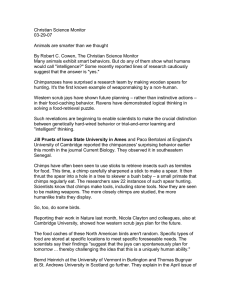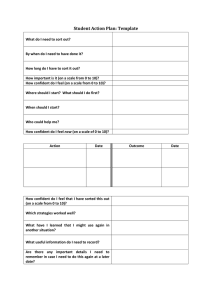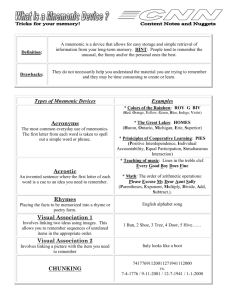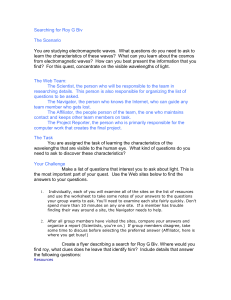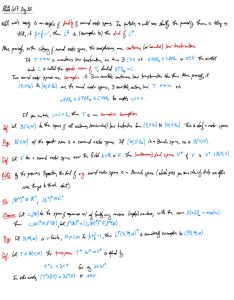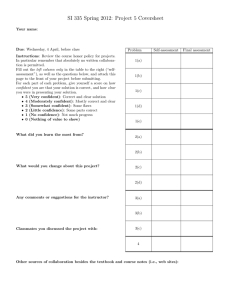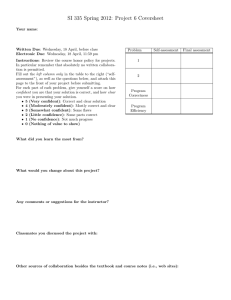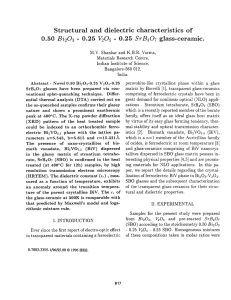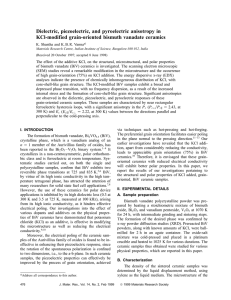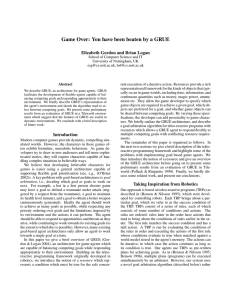Document 13519379
advertisement
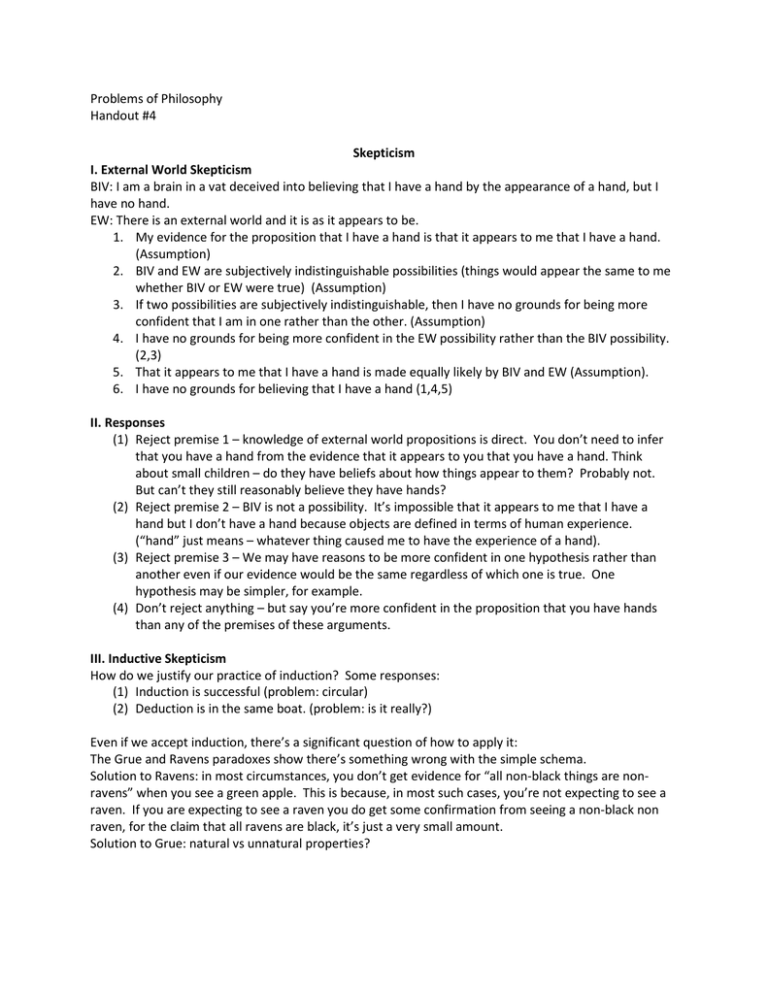
Problems of Philosophy Handout #4 Skepticism I. External World Skepticism BIV: I am a brain in a vat deceived into believing that I have a hand by the appearance of a hand, but I have no hand. EW: There is an external world and it is as it appears to be. 1. My evidence for the proposition that I have a hand is that it appears to me that I have a hand. (Assumption) 2. BIV and EW are subjectively indistinguishable possibilities (things would appear the same to me whether BIV or EW were true) (Assumption) 3. If two possibilities are subjectively indistinguishable, then I have no grounds for being more confident that I am in one rather than the other. (Assumption) 4. I have no grounds for being more confident in the EW possibility rather than the BIV possibility. (2,3) 5. That it appears to me that I have a hand is made equally likely by BIV and EW (Assumption). 6. I have no grounds for believing that I have a hand (1,4,5) II. Responses (1) Reject premise 1 – knowledge of external world propositions is direct. You don’t need to infer that you have a hand from the evidence that it appears to you that you have a hand. Think about small children – do they have beliefs about how things appear to them? Probably not. But can’t they still reasonably believe they have hands? (2) Reject premise 2 – BIV is not a possibility. It’s impossible that it appears to me that I have a hand but I don’t have a hand because objects are defined in terms of human experience. (“hand” just means – whatever thing caused me to have the experience of a hand). (3) Reject premise 3 – We may have reasons to be more confident in one hypothesis rather than another even if our evidence would be the same regardless of which one is true. One hypothesis may be simpler, for example. (4) Don’t reject anything – but say you’re more confident in the proposition that you have hands than any of the premises of these arguments. III. Inductive Skepticism How do we justify our practice of induction? Some responses: (1) Induction is successful (problem: circular) (2) Deduction is in the same boat. (problem: is it really?) Even if we accept induction, there’s a significant question of how to apply it: The Grue and Ravens paradoxes show there’s something wrong with the simple schema. Solution to Ravens: in most circumstances, you don’t get evidence for “all non-black things are non- ravens” when you see a green apple. This is because, in most such cases, you’re not expecting to see a raven. If you are expecting to see a raven you do get some confirmation from seeing a non-black non raven, for the claim that all ravens are black, it’s just a very small amount. Solution to Grue: natural vs unnatural properties? MIT OpenCourseWare http://ocw.mit.edu 24.00 Problems in Philosophy Fall 2010 For information about citing these materials or our Terms of Use, visit: http://ocw.mit.edu/terms.
